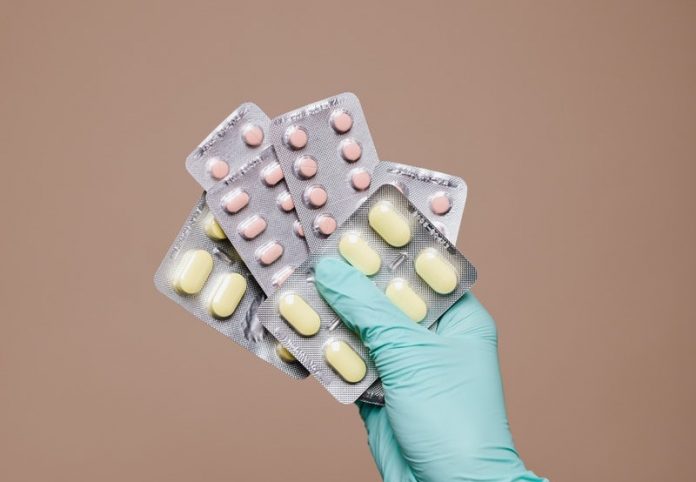
Remdesivir is currently the only antiviral drug approved in the U.S. for treating COVID-19 patients.
In a new study from the University of Texas at Austin, researchers found that four drugs used to treat hepatitis C render remdesivir 10 times better at inhibiting the coronavirus in cell cultures.
These results indicate that a mixture containing remdesivir and a repurposed hepatitis C virus (HCV) drug could potentially function as a combination antiviral therapy for SARS-CoV-2.
Such an antiviral could provide immediate treatment for unvaccinated people who become infected and for vaccinated people whose immunity has waned.
Because these hepatitis drugs are already approved for use and their potential side effects are known, such a combination therapy could be tested in humans more quickly than for a new drug.
One big drawback with remdesivir, however, is that it must be administered intravenously, limiting its use to patients already admitted to the hospital.
The team hopes to develop a combination of oral drugs that can be administered to outpatients before they are sick enough to require hospitalization.
They say the HCV drugs that enhance remdesivir’s antiviral activity are oral drugs. They would need an oral drug that inhibits SARS-CoV-2 in the same way as remdesivir to develop an effective combination treatment.
Remdesivir targets a part of the SARS-CoV-2 coronavirus called the RNA polymerase, which allows the virus to replicate, or make copies of itself.
The HCV drugs, on the other hand, target two other parts of HCV that are also critical for viral replication, called proteases.
Using a supercomputer to model how drugs bind to viral proteins, the researchers predicted that 10 HCV drugs would bind snugly to a SARS-CoV-2 protease.
They tested seven of these drugs in a secure biocontainment facility for their ability to inhibit SARS-CoV-2 virus replication in monkey and human cells growing in culture.
All seven HCV drugs inhibited virus replication, but the team was surprised to find that four of them (simeprevir, vaniprevir, paritaprevir and grazoprevir) inhibited an entirely different type of SARS-CoV-2 protease, called the papain-like protease.
And that difference proved to be important. When each of the seven HCV drugs was tested for virus inhibition in combination with remdesivir, only the four that targeted the unexpected protease boosted the efficacy of remdesivir, by as much as tenfold.
If you care about COVID-19, please read studies about people with these blood types may have lower risk of severe COVID-19 and findings of people with this health problem three times more likely to die in COVID-19.
For more information about COVID-19 and your health, please see recent studies about a two-drug combo that treats COVID-19 effectively and results showing that people with this bone problem twice as likely to die if they have COVID-19.
The study is published in Cell Reports. One author of the study is Robert M. Krug.
Copyright © 2021 Knowridge Science Report. All rights reserved.



